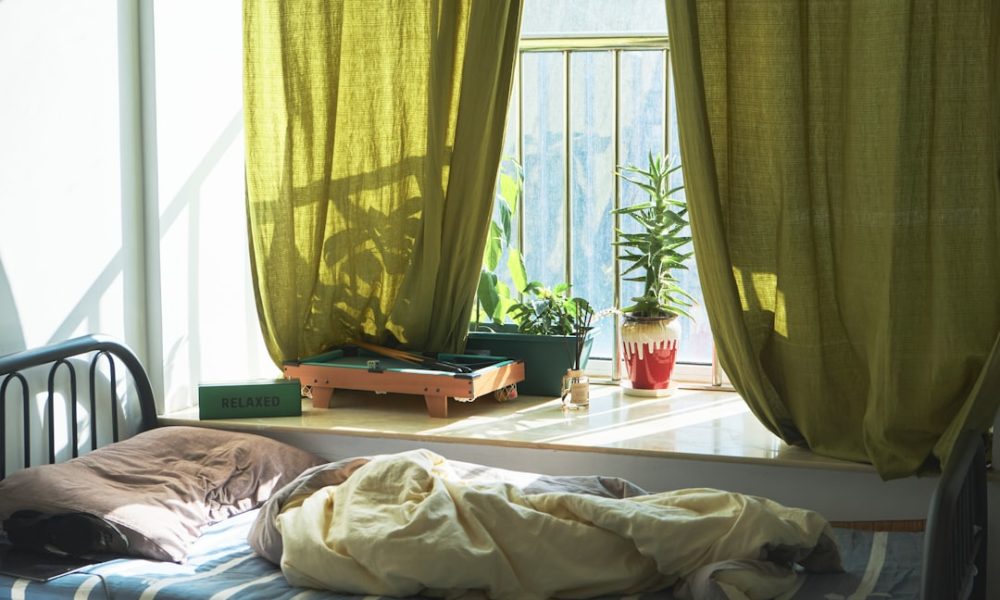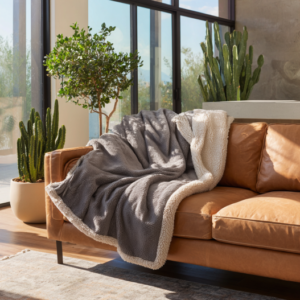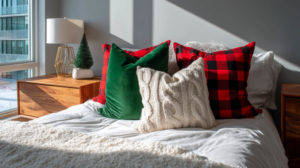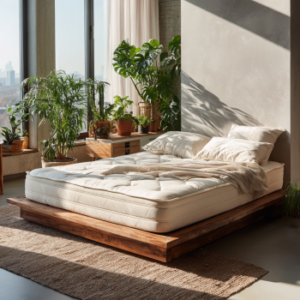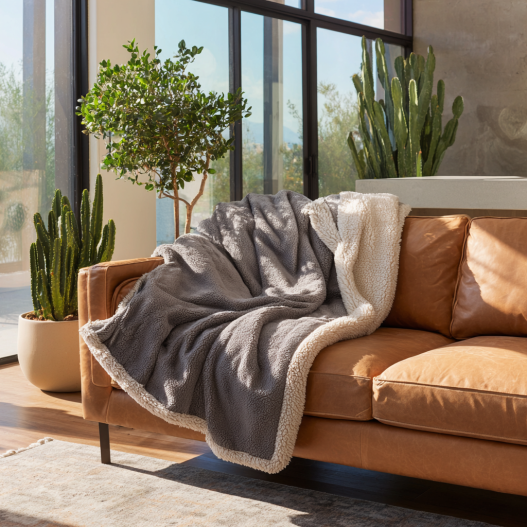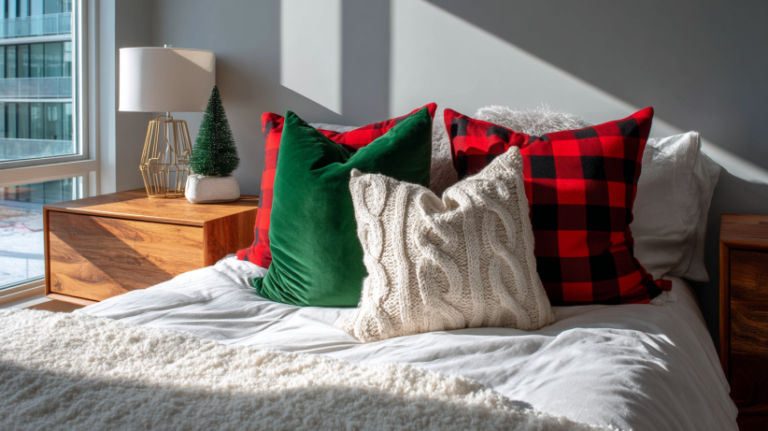Organic Bedding Materials Guide for Sleepers
Looking for a healthier bed setup fast? Organic bedding materials like cotton, bamboo, linen, Tencel, wool, and hemp are free from harsh chemicals, breathable, and responsibly sourced—helping you sleep cooler, sneeze less, and shrink your environmental footprint in one upgrade.
Key Takeaways
- Best all-rounder: Organic cotton for softness, breathability, and easy care.
- Coolest feel: Bamboo or Tencel for moisture-wicking, silky comfort.
- Most durable: Linen and hemp for long life and lived‑in texture.
- Coziest warmth: Wool for temperature regulation year‑round.
- Shop by standards: Look for GOTS, OEKO‑TEX® Standard 100, Fair Trade, and FSC.
In an era where sustainability is at the forefront of consumer choices, the bedding industry is experiencing a significant shift toward organic materials. More homeowners are prioritizing comfort without compromising the environment, opting for organic and sustainable bedding options that promote better sleep and a greener planet. If you’re looking to upgrade your bedroom with organic bedding materials, this guide will introduce you to the best materials, brands, and care tips to ensure your sleep is as sustainable as it is restful.
The Growing Demand for Organic Bedding
Summary first: Organic bedding is rising because people want safer, longer‑lasting fabrics without toxic finishes or heavy resource use.
With increased awareness of climate change and eco-conscious living, more people are making informed decisions about their home essentials. Bedding, which directly affects our health and well-being, is no exception. Organic bedding materials offer several benefits:
- Non-toxic and chemical-free: Traditional bedding is often treated with harsh chemicals that can trigger allergies or respiratory issues.
- Biodegradable and renewable: Natural fibers decompose faster and have a lower carbon footprint.
- Durability and comfort: High-quality organic bedding lasts longer and provides superior breathability for a better night’s sleep.
For more insights on maintaining a sleep-friendly environment, check out our guide on
How to Keep Your Mattress Fresh and Allergen-Free.
Popular Organic Bedding Materials
Summary first: Choose by need—cotton for balance, bamboo/Tencel for coolness, linen/hemp for durability and texture, wool for cozy regulation.
1. Organic Cotton
Quick take: The safest “first step” into organic—soft, breathable, widely available.
One of the most widely used organic bedding materials, organic cotton is grown without synthetic pesticides or harmful chemicals. It is breathable, hypoallergenic, and soft, making it an excellent choice for all seasons.
Best for:
- People with sensitive skin or allergies
- Year-round comfort
Learn more about different bedding materials and their benefits. For deeper dives, see our guides on
Linen vs. Cotton Sheets and
Best Bedding for Hot Sleepers.
2. Bamboo Fabric
Quick take: Cool, drapey, and moisture‑wicking—great if you overheat at night.
Bamboo-derived fabrics, such as bamboo rayon and bamboo lyocell, are naturally antimicrobial, moisture-wicking, and ultra-soft. Bamboo is a fast-growing plant that requires minimal water, making it a highly sustainable option.
Best for:
- Hot sleepers needing moisture-wicking properties
- Those seeking a silky-smooth texture
Compare plant-based options in
Tencel vs. Bamboo Sheets and our
Bamboo Sheets: Pros & Cons.
3. Linen
Quick take: Airy, strong, and beautifully rumpled—improves with every wash.
Linen bedding, made from flax fibers, is naturally breathable and gets softer with every wash. It has a luxurious texture and excellent moisture-absorbing properties, keeping you cool in the summer and warm in the winter.
Best for:
- Those who prefer a rustic, relaxed bedding look
- Individuals living in humid climates
4. Eucalyptus-Derived Tencel (Lyocell)
Quick take: Smooth, cool, and made in a closed‑loop process—an elegant alternative to silk.
Tencel, made from eucalyptus trees, is an environmentally friendly alternative to synthetic fibers. It is produced using a closed-loop system that recycles water and solvents, reducing waste.
Best for:
- People looking for a sustainable alternative to silk
- Individuals with sensitive skin
5. Wool and Hemp
Quick take: Naturally regulates temperature (wool) and offers exceptional strength (hemp).
Wool is naturally temperature-regulating, making it ideal for all-season bedding. Hemp, on the other hand, is one of the most durable natural fibers and requires little water to grow. Both materials are biodegradable and provide excellent insulation.
Best for:
- Cold sleepers who need extra warmth
- Eco-conscious buyers looking for long-lasting bedding options

Eco-Friendly Certifications to Look For
Summary first: Trust labels—GOTS, OEKO‑TEX® Standard 100, Fair Trade, and FSC help verify safety and sourcing.
When shopping for organic bedding materials, look for the following certifications to ensure authenticity:
- GOTS (Global Organic Textile Standard) – Ensures organic materials and fair labor practices.
- OEKO-TEX® Standard 100 – Guarantees that the fabric is free from harmful substances.
- Fair Trade Certified – Ensures ethical labor practices and sustainable sourcing.
- Forest Stewardship Council (FSC) – Certifies responsibly sourced wood-based fibers (like Tencel).
Learn more about how to choose sustainable bedroom furniture and accessories in our
Sustainable Bedroom Ideas.
Best Brands Offering Organic Bedding in 2025
Summary first: Start with trusted names for quality and transparency across materials and price points.
- Cozy Earth – Known for ultra-soft bamboo sheets and breathable fabrics.
- Parachute Home – Offers high-quality organic cotton and linen bedding.
- Buffy – Specializes in Tencel-based comforters and pillows.
- Boll & Branch – Uses 100% organic cotton with Fair Trade certification.
- Avocado Green – Provides eco-friendly mattresses, pillows, and bedding made from organic materials.
How to Care for Organic Bedding Materials
Summary first: Wash cool, use gentle detergents, dry low or line‑dry, and store in breathable spaces.
- Use cold water washes – Reduces energy consumption and preserves fabric integrity.
- Opt for natural detergents – Harsh chemicals can damage organic fibers.
- Air dry when possible – Reduces carbon footprint and prevents shrinkage.
- Store properly – Keep linens in a cool, dry place to prevent mildew.
For more tips, check out
our complete guide to mattress hygiene and cleaning.
FAQ
Summary first: Quick answers to common questions about organic bedding materials.
- What are the safest organic bedding materials for sensitive skin?
- Start with GOTS-certified organic cotton or Tencel. Both are smooth, breathable, and less likely to irritate skin than heavily finished synthetics.
- Are bamboo and Tencel sheets really cooler?
- Typically yes. Both fabrics wick moisture effectively and drape close to the body, which can help hot sleepers feel drier and cooler overnight.
- How do I know if a product is truly organic?
- Look for GOTS for organic content and OEKO‑TEX® Standard 100 for safety testing. Fair Trade and FSC add sourcing and labor transparency.
- Will linen feel rough?
- New linen can feel textured at first but softens significantly after a few washes while remaining durable and breathable.
- Do organic sheets last longer?
- Often yes—fewer harsh finishes mean fibers maintain integrity. Proper care (cool wash, gentle detergent, low heat or line‑dry) extends lifespan.
Conclusion
Summary first: Pick the material that fits your sleep style and verify with trusted certifications—then care gently to make it last.
Switching to organic bedding materials is a small but impactful step toward a more sustainable lifestyle. Not only does it benefit the environment, but it also improves sleep quality and overall well-being. With an array of sustainable materials and brands to choose from, making the switch to greener bedding has never been easier. Start your journey today by investing in bedding that’s good for you and the planet!
Did you find this guide helpful?
Share your thoughts in the comments below, and check out our recommended organic bedding picks for 2025!
Related reading from Cozy Bed Quarters
- 7 Essential Tips for Selecting Perfect Bed Linen
- Best Bedding Material to Enhance Your Sleep
- Organic Bedding Benefits: 7 Surprising Reasons to Upgrade Your Sleep Naturally
Other reading we found popular
- The Spruce — Best Organic Sheets
- Architectural Digest — Best Eco-Friendly Products for Bedroom
- Real Simple — Best Organic Sheets

